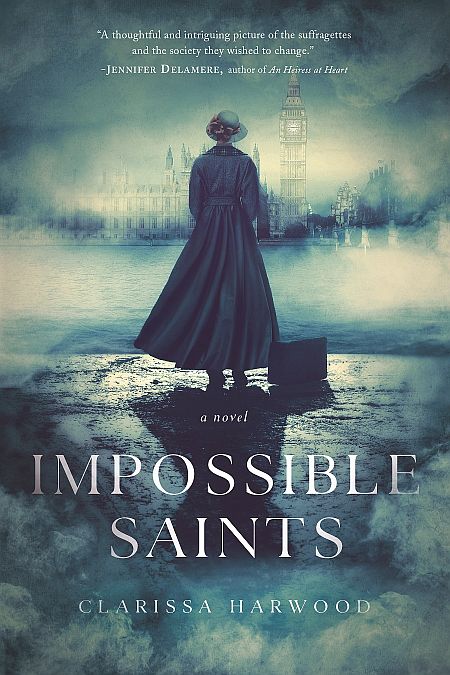Please introduce yourself and your book(s)
I’m Clarissa Harwood, author of three historical novels: Impossible Saints, Bear No Malice, and The Curse of Morton Abbey. My novels feature strong women trying to find their place in a world that is often hostile to them. These books are also love stories, showing characters trying to navigate relationships with love interests, friends, and (in the first two books) God. While my books wouldn’t necessarily be classified as inspirational, the first two are focused on faith and feminism. The third is a gothic mystery with a strong romantic thread. (The romance is always “closed-door,” so if readers prefer more gritty or sexy books, mine are not for them!)
Tell us about the characters and interpersonal relationships in your stories
In Impossible Saints, set in 1907, Lilia is a suffragette who is passionate about fighting for the vote for women. She is good at mobilizing others and supporting her community of women, but not good at romance. Paul is an Anglican priest who struggles to balance his interest in the agnostic Lilia with his beliefs and his role in the church. The way Paul and Lilia navigate the challenges of their relationship is central to the novel.
What lessons could readers learn about real-world interpersonal relationships from your novel(s)?
One of the major themes in my writing is that we can empathize with nearly anyone if we put ourselves in their shoes. I experimented with this idea in narrative form with my second novel, Bear No Malice, which took Tom, the “villain” of Impossible Saints, and told his story from his perspective. Readers have a different experience depending on which novel they read first. When they get to the second, they are startled to see who the protagonist is (“Wait! I thought we don’t like him!” one reader exclaimed, to my great amusement). My favorite feedback comes from readers who tell me they ended up loving both Paul and Tom.
Another theme I write about is how relationships can work even between people who are broken. The protagonists of all my novels have been hurt in the past and have plenty of emotional baggage, yet they learn that they are lovable and worthy of love.
What real-life interpersonal relationship experiences, observations or insights have influenced your writing?
Along the same lines as the empathy idea I mentioned above, if I’m having trouble with someone in my life or struggling to understand their choices, I try to imagine them as the hero of their own story. I’ve even written out my negative encounters with them as scenes from their point of view, making myself the villain, in order to empathize with them. This doesn’t always lead to a better relationship, but it’s important not to give up trying to see a situation from someone else’s point of view.
Are there any interpersonal relationship themes or topics you want to cover in future releases?
I don’t like to give away too much about new or unfinished projects, but I can say I’m working on a novel that focuses on female friendship. Two women who were best friends for many years are broken apart by trauma and misunderstandings. The question the novel attempts to answer is whether or not they can rebuild that friendship.

